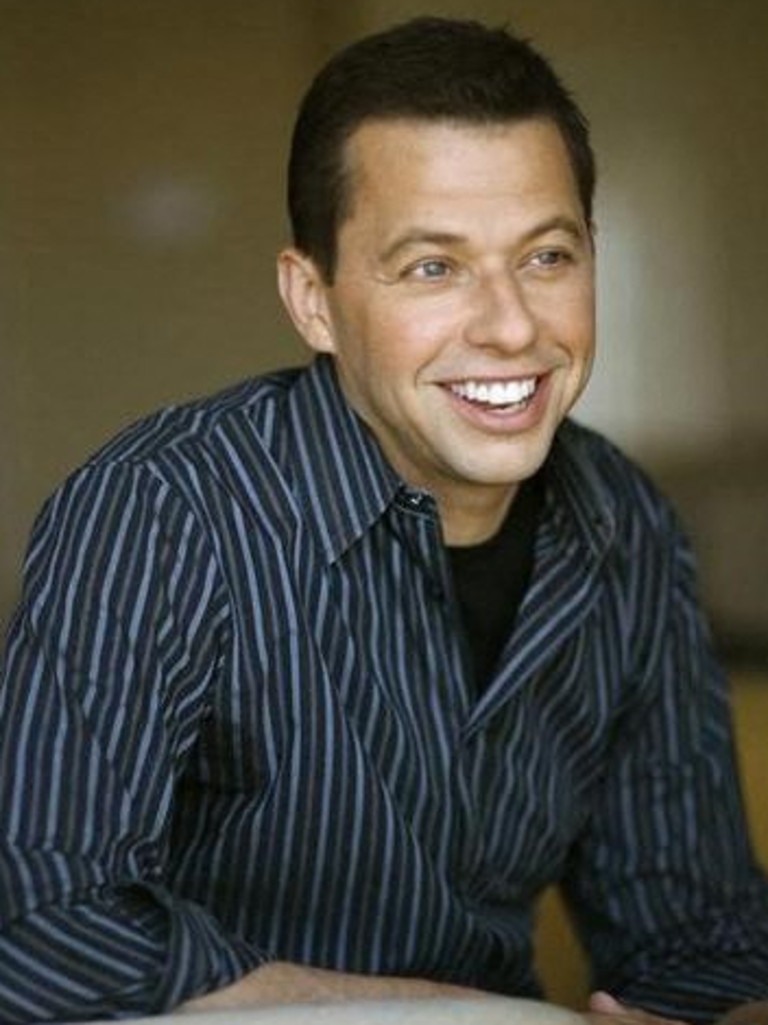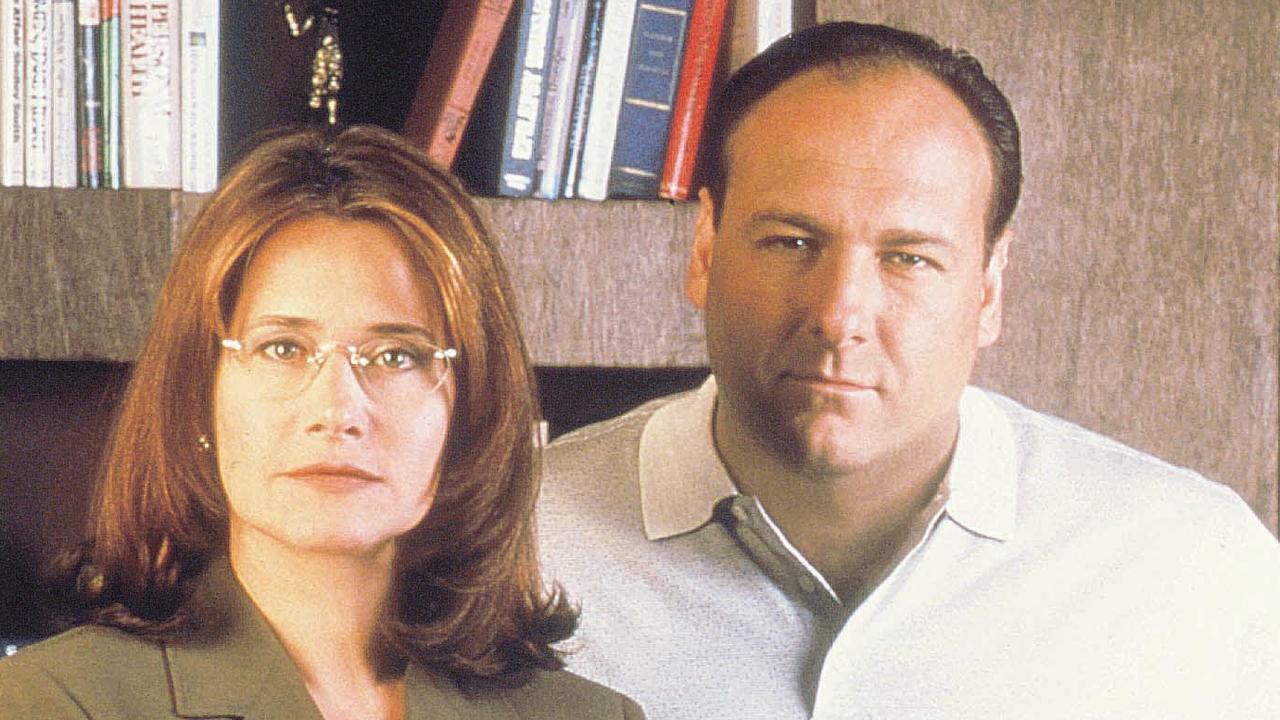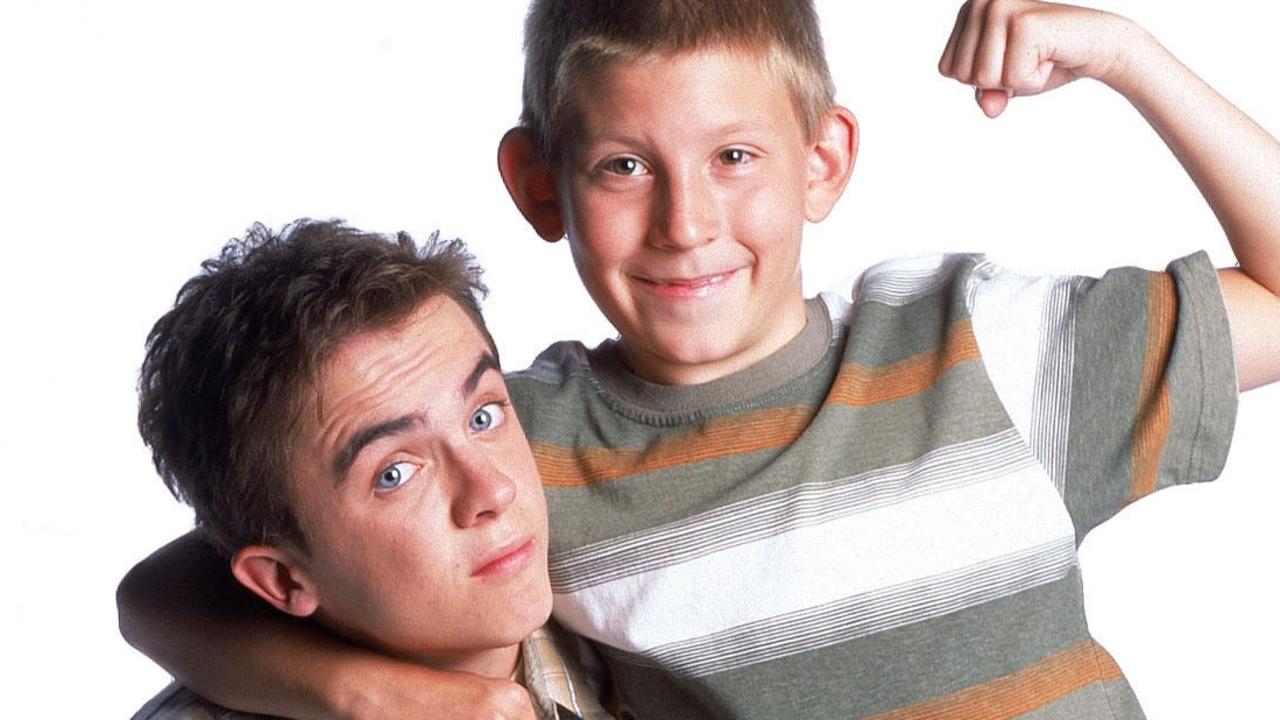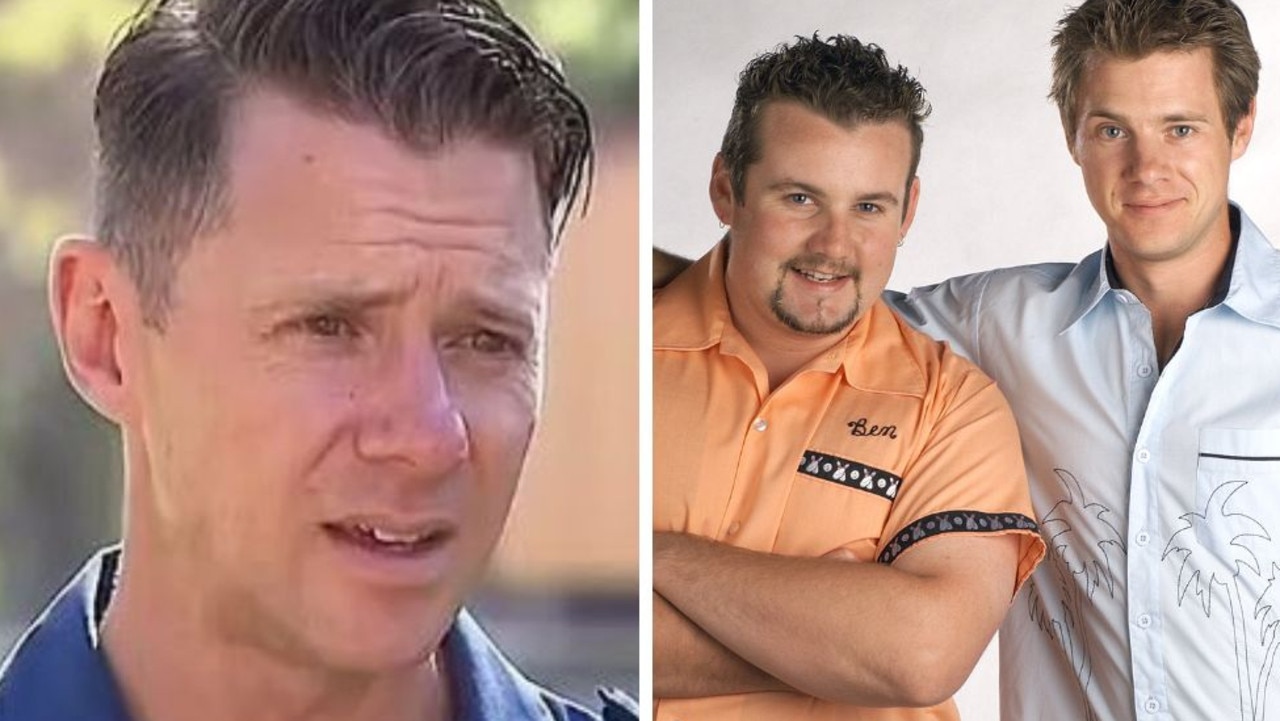Jon Cryer was almost Chandler — plus TV secrets of Friends, Cheers, and more
The director behind major shows such as Friends, Will & Grace and Cheers has lifted the lid on some of the biggest secrets from the sets.

Jon Cryer was almost cast as Chandler Bing on ‘Friends’, but FedEx ruined his shot.
The Pretty in Pink star taped an audition while in London and arranged for it to be rushed overnight to Los Angeles. But, as TV director James Burrows reveals in his new book, the carrier lost the package and producers never even saw Cryer’s audition – clearing the way for Matthew Perry to be cast.


That’s just one of the stories in Directed by James Burrows, out June 7, about the TV guru’s six-decade career in TV. He’s directed more than 50 pilots and been associated with some of the greatest sitcoms of all time including Friends, Will & Grace, Taxi and Cheers, which he co-created.
Here are some of the most surprising stories from the book:
‘Friends’
Burrows had to talk David Schwimmer into taking the role of Ross Geller, which was expressly written for him.
“David initially turned down the Friends job because he had a miserable experience on another show,” Burrows reveals of the actor, who previously co-starred on Monty with Henry Winkler.
“He was hesitant to commit to a five-year minimum term, which all sitcom actors have to do … He was concerned that the show wasn’t going to be collaborative and that his ideas wouldn’t be welcome. We assured him that this experience would be different and it would be an ensemble.”
To help create camaraderie between the sextet, Burrows borrowed the Warner Bros. corporate jet to take the then-unknown actors to Vegas for some bonding time.
Convinced the show would be a hit, Burrows told them: “This is your last shot at anonymity. Once the show airs, you guys will never be able to go anywhere without being hounded.” “None of them believed me,” he said. “None of them had any money at that point either, so I gave each of them a couple of hundred bucks to go gamble.
“I laid out $1400. If the math doesn’t seem right, it’s because LeBlanc had no idea how to play craps and he lost his $200 in seconds, so I gave him another 200. They went back to Los Angeles, the show premiered, they’ve never had a shot at anonymity since, and they each wrote me reimbursement cheques for the money I gave them.”

‘Laverne & Shirley’
Burrows writes that there was “tension” between co-stars Penny Marshall and Cindy Williams “from the get-go.” Penny was the sister of the show’s creator and producer Garry and their father, Anthony, and sister Ronny were also producers – which apparently made Williams feel like the odd woman out.
“Cindy felt that the show was too Marshall-heavy and counted how many lines she was assigned versus Penny,” Burrows writes. “The two started having problems with each other, which went public. I was on the set when the sh*t hit the fan and the entire writing staff, whom I loved, was fired.”
‘Taxi’
Burrows was impressed by surrealist comedian Andy Kaufman, who played the gentle mechanic Latka. Once, Kaufman’s alter ego Tony Clifton – a vulgar lounge-singer character – was set to appear on an episode before producers thought better of it.
When they let Kaufman’s manager know, he said that was fine but that “Tony” insisted he had “to be fired in front of everybody, with a hooker on each knee,” according to the book.
“Tony” did not take being fired well and began shouting “and a big fight ensued with everyone yelling and screaming.” Co-stars Tony Danza and Judd Hirsch loved it, Burrows writes, but Jeff Conaway was annoyed by Kaufman’s theatrics.
Burrows also reveals that Danny DeVito found a way to make extra money on set while playing cantankerous taxi dispatcher Louie De Palma.
“Danny developed a little cottage industry taking bribes from the company, including me, to announce the names of family and friends when [his character] was dispatching cabs,” he writes. “He had a good side hustle going.”
Meanwhile, Danza was known as a rascal on the soundstage – stealing the security guard’s golf cart as “well as Fonzie’s motorcycle from the Happy Days set”.
‘Cheers’
Burrows writes that in the first season of the show about a Boston bar, they tried to nab one legend for a guest spot: Lucille Ball to play Diane Chambers’ (Shelley Long) mother. Burrows and the Charles’ brother went to the star’s home in Beverly Hills to discuss the part.
“[We] sat in the living room with Lucy and her second husband, Gary Morton, whom she married after she and Desi Arnaz divorced,” Burrows recalls.
“We pitched her on the idea. Gary chimed in with something. Lucy cut him off and said, ‘Gary, remember where you were.’ As we left her house, we were trying to decide if Lucy meant ‘Remember where you were in that story you were telling’ or ‘Remember where you were before you married me.’”
Either way, “Lucy turned us down” and the role went to British actress Glynis Johns.
Meanwhile, the character Frasier Crane, played by Kelsey Grammer, was only supposed to be in four episodes.
But the minute they saw Grammer’s face on an audition tape, “We all started laughing … He drove out from New York and for a time was living in his car on the Paramount lot.” The actor ended up playing the character for nearly 20 years, across both Cheers and his own show, Frasier.

Woody Harrelson was basically unknown when he was cast as loveable but dimwitted bartender Woody Boyd. Burrows recalls how the actor’s youthful joie de vivre energised the cast after Nicholas Colasanto, the actor who played barkeep Coach, died of a heart attack.
“Woody brought foosball, water guns and spitballs to the set, turning the middle-aged cast into fun monsters chasing one another around … ” Burrows writes. “That cast was unrestrained.”
Burrows writes that he once asked Harrelson if he could hop over the bar rather than walk around it. He was able to “and it became a seminal moment for both character and show. He was adorable doing it, and it pissed off everyone else, especially Teddy. During
rehearsal, Teddy tried to jump over the bar. It was not a good moment for either Ted or the bar.”
Jay Thomas was a stand-up comedian and disc jockey when he appeared in “Cheers” as Eddie LeBec, a Boston Bruins goalie and love interest for waitress Carla Tortelli (Rhea Perlman). One day a caller to his radio show asked him what it was like being on “Cheers” and Thomas replied, “‘It’s brutal. I have to kiss Rhea Perlman.’
“That was it. He insulted Rhea, which meant he insulted all of us,” Burrows writes. “He crossed the family. Jay was fired unceremoniously. Since he was no longer on the show, Eddie also had to go. In our world, you don’t wind up sleeping with the fishes; you die a violent yet comedic death.”
Writers had Eddie playing a penguin on a travelling ice show when he’s killed by a slow-moving Zamboni machine.
‘The Bob Newhart Show’
Burrows reveals that when he worked on the 1972 pilot for “The Bob Newhart Show,” they found that the show was running a little too long. A producer approached the comedian and said, “‘Bob, could you stammer a little less?’ Newhart’s reply: ‘That stammer paid for my house in Beverly Hills.’”
‘Will & Grace’
Burrows reveals that it came down to Sean Hayes and Alexis Arquette for the part of Jack McFarland.
“Jack is based on a man in New York who slept with everyone,” he writes. “By casting Sean, who looks fairly innocent and sweet, we didn’t go to the dark side and therefore the character became much more appealing.

Bob Odenkirk once signed on to play Grace’s boyfriend Nathan — but at the first table read the “Better Call Saul” star’s performance was off. At the time, the actor was best known for the cult-hit series “Mr. Show” and producers were nervous that he wouldn’t be able to deliver, so Woody Harrelson took the role. Years later, Odenkirk told Burrows that he and his wife had just had a new baby at the time and he was exhausted.
‘Men Behaving Badly’
In recent years, Burrows has had a “fun clause” added to every sitcom contract he’s signed which allows him to unilaterally walk away from a project if he’s not enjoying himself. It’s only been used once, on the short-lived NBC show “Men Behaving Badly.”
It was based on a British show about two sweet men who did horrible things. Burrows explains that the original show worked because the leads were so loveable, the audience forgave their nasty acts. But, he adds, the American version’s first mistake was hiring “Saturday Night Live” alum Rob Schneider — who was “neither sweet nor did he know how to play a sweet character, so it became a show about a malevolent guy doing malevolent things.
“No one could connect with that. Rob and Ron [Eldard, his co-star] never got on. Occasionally, the producers would say, ‘Rob’s in his trailer and he won’t come out. Can you talk to him?’ The vitriol got so bad that during a taping, in front of an audience, the cast ‘walked through the show,’ saying their lines with no emotion,” Burrows writes. “They tried replacing Ron with Ken Marino, but people found it very difficult to work with Rob. I was done.”
Burrows says in the book that fun for him is a harmonious working environment without shouting matches or diva tantrums.
“I still believe that kindness is the most important currency you can trade in, in business and in art … What I believe I owe my success to is my way of making everyone in the lifeboat feel like they’re keeping everyone else afloat.”
This article originally appeared in the New York Post and was reproduced with permission.





